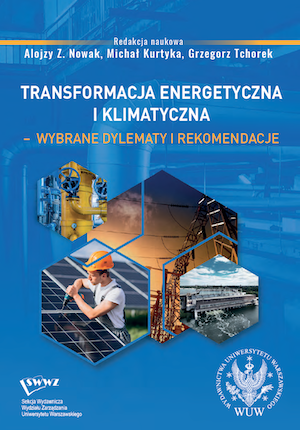Otwarta innowacja a wodorowe projekty badawczo-rozwojowe w UE – wnioski dla polskich przedsiębiorstw
Open innovation in financing EU research and developments projects in hydrogen – conclusions for Polish enterprises
Author(s): Daniel Cios
Subject(s): Business Economy / Management, Energy and Environmental Studies
Published by: Wydawnictwa Uniwersytetu Warszawskiego
Keywords: open innovation; Horizon 2020; hydrogen; technology; European Union
Summary/Abstract: This chapter presents one of the EU instruments that supports research and development projects in hydrogen production and usage. Enterprises face various challenges related to the development of the market for hydrogen solutions, proper identification of needs and using internal and external capacity to develop research and development projects. The concept of Open Innovation will be used to explain the functioning of the instruments of the European Union in supporting research and development. Innovation in the hydrogen sector is mainly driven by needs created outside of enterprises and requires wide cooperation between various economic entities from many countries combining various competences. The chapter analyses the structure of the EU Fuel Cells and Hydrogen Joint Undertaking (FCH), the actors involved in adoption of calls for proposals under Horizon 2020 (years 2014–2020) under the FCH and participation of entities in projects that were selected for funding. EU cooperation is necessary to tackle the technological challenges of the 21st century related to energy transition and global competition. The European Union has instruments, which can and should be used by Polish economic and research entities in order to be among the leaders of hydrogen technologies. In this chapter, the author reveals the modest participation of Polish economic and research entities in creating calls for proposals under the FCH and in participation in projects selected for funding (in the period 2014–2020). This can lead to a conclusion that strategies of Polish enterprises do not yet recognise the possibility of using open innovation at EU level.
Book: Transformacja energetyczna i klimatyczna – wybrane dylematy i rekomendacje
- Page Range: 139-154
- Page Count: 16
- Publication Year: 2021
- Language: Polish
- Content File-PDF

